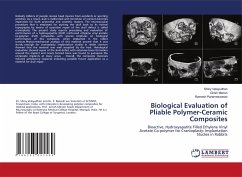
The Ethical Dimensions of the Biological and Health Sciences

PAYBACK Punkte
36 °P sammeln!
This is the second edition of a highly successful and well-received textbook on the responsible conduct of biomedical and health science research. It is aimed at faculty and graduate students in health science and biomedical science programs. In addition those on National Institute of Health research grants, administrators at universities, academic health centers, and medical and graduate schools will find the book a useful resource. The structure of the book remains the same as the first edition. Each chapter offers an overview together with important primary documents and case studies concer...
This is the second edition of a highly successful and well-received textbook on the responsible conduct of biomedical and health science research. It is aimed at faculty and graduate students in health science and biomedical science programs. In addition those on National Institute of Health research grants, administrators at universities, academic health centers, and medical and graduate schools will find the book a useful resource. The structure of the book remains the same as the first edition. Each chapter offers an overview together with important primary documents and case studies concerned with core ethical issues underlying responsible research. The major changes from the first edition include new chapters providing overviews of each topic, several new published articles added to the readings, revised case studies along with an essay on how they can be used, as well as further readings and web addresses that will serve as invaluable sources of reference.














